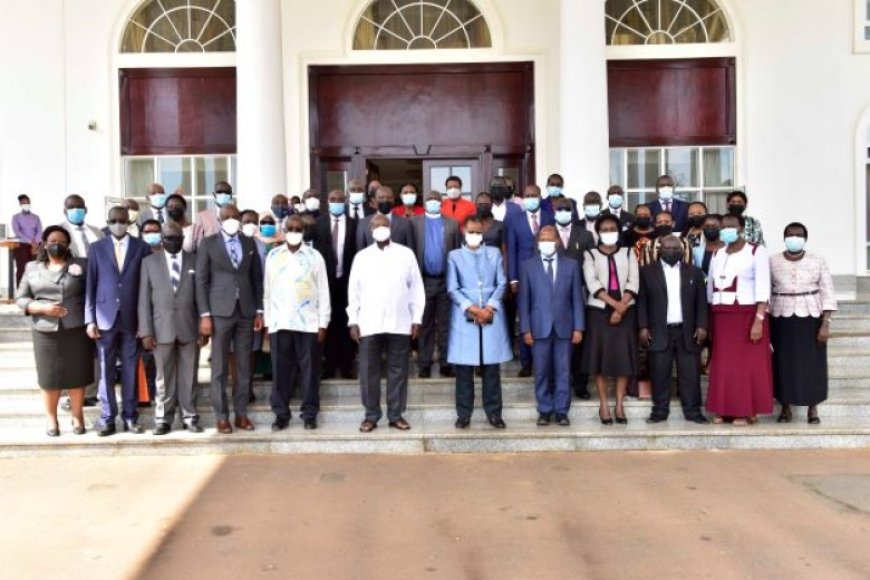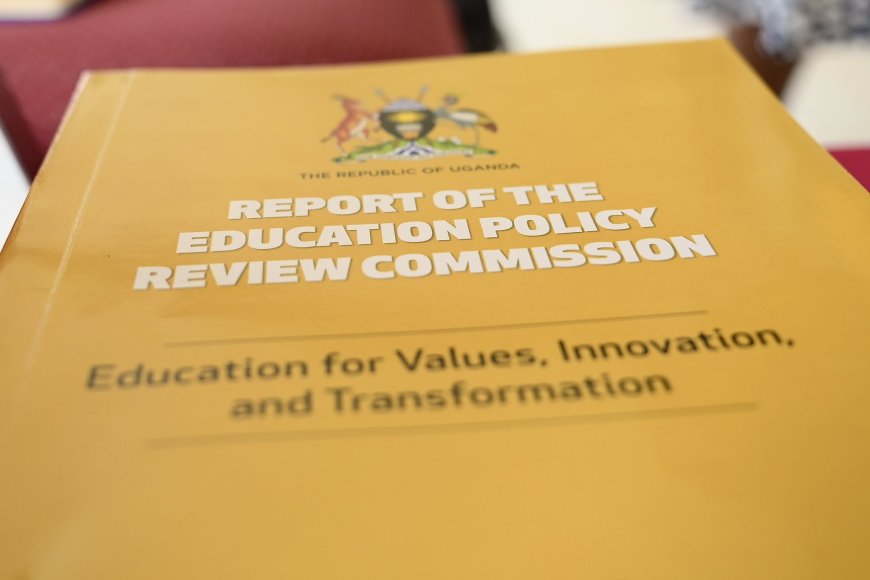The Education Policy Review Commission (EPRC) that was appointed in 2021 by president Yoweri Kaguta Museveni and headed by former minister of education and sports Hon Amanya Mushega has finally released their report Recommending Massive Changes in Uganda’s Education System.
The Main Function of the Education Policy Review Commission (EPRC) was to Draft a New Macro Policy Framework for Education and Sports for Uganda.
President Museveni in 2023 after two years is establishment met the members of the Education Policy Review Commission (EPRC) and suggested six areas to be explored for inclusion in the report that will inform the formulation of the new Government White Paper on Education and Sports services in the country.
President Museveni explained that Uganda’s education system must emphasize the issue of manufacturing and expanding services and it must expose how Africa and other parts of the world can go from exporters of raw materials to building an integrated economy.
President Museveni’s mention of exploring the Pre-Capitalist and Pre-Colonial systems refers to understanding historical contexts that influenced Africa’s colonization and economic development, which could inform educational policy reform.
While handing over the four year report, The chairperson of the commission Hon Amanya Mushega noted that, among the commission’s recommendations is abolishing the Primary Leaving Examinations (PLE) and restructuring the language of instruction in primary schools.
This 242-page report suggests beginning with the renaming the Ministry of Education and Sports (MoES) to the Ministry of Education, Sports and Training (MoEST) to allow for a broader and more effective leadership role in Uganda’s evolving education sector.
” English to Be Limited in Lower Primary One of the most important proposals is the limitation of English as a language of instruction in early primary school. Up to Primary Four (P4), all subjects will be taught in the learners’ mother tongue, with English being introduced only as a subject. From Primary Five (P5) onwards, English will become the primary language of instruction”. Reads Part of the report.
The policy aims to strengthen literacy and comprehension in local languages before transitioning to English. Additionally, every learner will be required to become fluent in three languages: English (as the international language), Kiswahili (Uganda’s second official language), and One Ugandan indigenous language (learner’s mother tongue).
To improve identification and monitoring in schools, the report also recommends that the National Identification Number (NIN) and National ID be integrated into the school system.
PLE to Be Abolished, New Assessment Model Introduced Instead of a national exam at the end of primary school, the report recommends a continuous assessment model, where learners are evaluated throughout their 11 years of basic education. Under this new structure, basic education will include:
1 year of nursery/pre-primary, 6 years of primary school, and 4 years of O’level (lower secondary). Students will then proceed to 2 years of A’level (higher secondary) and 3 years of tertiary education.
This shift aims to balance academic knowledge with technical and practical skills. The report also recommends making nursery education compulsory for children aged 5-6 years.
It calls for the government to fully fund pre-primary education, reversing the 1992 Kajubi report that left it to the private sector.






